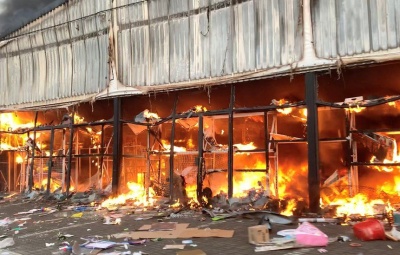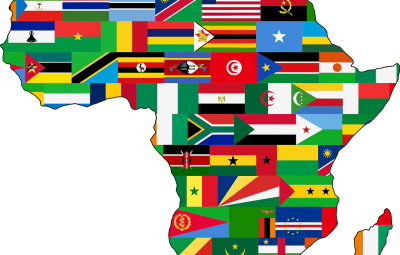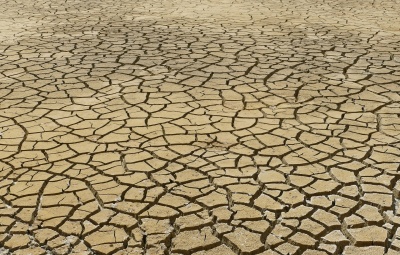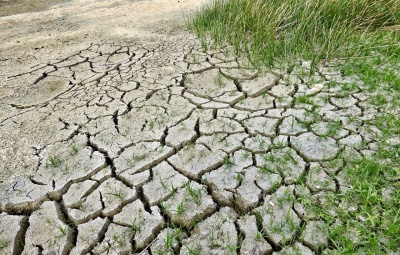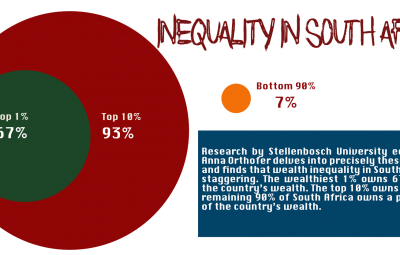The Death of Mugabe, Selective Amnesia and Contrived Heroism
- September 18, 2019
- Politics & Society
Those who seek to hoist Robert Mugabe as a hero are in contempt of moral logic, courtesy of selective amnesia . Writes Gugulethu Nyoni.

Zimbabwe President Robert Mugabe speaks at the party’s annual conference on December 17, 2016 in Masvingo. JEKESAI NJIKIZANA/AFP/Getty Images
Former Zimbabwe ruler Robert Mugabe’s passing away and the furore it has generated the world over, has spurred a diversity and divergence of reflections. We have been inundated by mixed reactions across the spectrum of vitriolic diatribes on one end and convoluted boot-licking chants from all the corners of the earth.
Out of the entire ballyhoo of mixed reactions, what has left me flummoxed, almost concussed, is the glaring dearth of leadership in Africa deducible from the passioned reflections on Robert Mugabe’s legacy.
My reaction is not at all weaved in the spirit of speaking ill of the dead. Notwithstanding, It is one thing for a country to endure the tyranny of a despot for close to four decades, it’s another, to have African leaders and the ill informed commentariat insult our intelligence and continue to force-feed us out-of-touch, deluded narratives and dogmas of the perceived fallen and departed ruler’s liberation valor and legacy.
For those seeking to peddle and propagate the glorious story of Robert Mugabe, the point of departure is a crushing halt. Mugabe died in a hospital in Singapore where he had been receiving medical treatment for around four months. This, incontrovertibly circumstantiates the very fact that over his protracted totalitarian streak, Mugabe managed to successfully and systematically run down the country’s health system, in fact, all the facets of the country’s economy.
Needless to say the state of medical care in Zimbabwe is in a shambles. Medical professionals have to bear with the unthinkable working conditions and the grim realities of having to conduct surgical operations with bare hands at worst or use non-sterile gloves at best while having to wash used bandages for reuse.
According to Doctor Faith Muchemwa:
“They (nurses) alternate days. They wash them (bandages), they hang them in the bathroom, they use these one today, tomorrow they take those ones which are now dry, they re-use them,” said Muchemwa.
The above alone could suffice as a cogent index to the man’s legacy but let me indulge you further.
Robert’s Mugabe’s Brief Timeline
The culmination of the armed struggle between ZANLA and ZIPRA against the Rhodesian army was the independence of Zimbabwe in 1980. Mugabe swooped. The stage was set for what would be a long drawn out authoritarian rule.
The, “Surely this is now the time to beat our swords into ploughshares” sloganeering was short-lived as Mugabe began to unfold his ominous cast-on-enamel dictatorial script.
Hardly three years after independence, Mugabe unleashed the notorious Fifth Brigade in Matebeleland in a bid to quash opposition and dissent if not to obliterate the entire Ndebele tribe from the face of the earth. Thousands were butchered in some graphic, savage and barbarous acts of unimaginable evils.
Mugabe termed the diabolic orgy “Gukurahundi” a chiShona term that translates to, “the rain that washes away the chaff (from the last harvest), before the spring rains”.
Hazel Cameron indicates that between 10 000 and 20 000 unarmed civilians died in this demonic operation.
Countless Ndebeles were displaced. The international community watched in limbo and ultimately the then leader of ZAPU Joshua Nkomo was browbeaten into a merger of ZAPU and ZANU PF in exchange for a ceremonial Vice President position as one of the two of Mugabe’s deputies.
The regime had already begun to entrench its networks of patronage whose modus operandi was rulership by terror, through murder, rape, abduction, torture and systematic oppression. Inevitably, the economy started to crack as was evident through record breaking and ground breaking inflation and unemployment margins. This gave rising popularity to the opposition Movement for Democratic Change (MDC). In a bid to reinforce his grip on the state, Mugabe ran a referendum which he bitterly lost in the year 2000 thanks to the agitations of the opposition and civic society.
With clearly waning popularity, it was time for the draw-card, land reform. Mugabe moved to seize white owned land and the chaotic land seizures ensued. When the supreme court ruled that land grabs were unlawful Mugabe fired the judges and replaced them with his own underlings. While the world was screaming for change, the then South Africa president Thabo Mbeki played protective brother to Mugabe and warded off external intents to craft a long term solution to the Zimbabwe problem. All this was done in the name of finding “African solutions to African problems”, Thabo Mbeki echoed ostensibly. And we have come to know that what was meant by “African solutions” was mere protectionism and gate keeping that takes place in the supra syndicate of African statesmen who have clandestinely vowed to uphold each other even if it means decimating the whole of Africa into oblivion.
After the contentious 2008 elections that Robert Mugabe lost, Thabo Mbeki mediated the dodgy and discreditable 2008-2009 power sharing deal which saw the man who had lost the election retain executive power at the helm of the arrangement. Mugabe and his cronies continued to gang-rape Zimbabwe until the rift within ZANU PF played out in military led coup in November 2017.
The Legacy
Mugabe successfully collapsed Zimbabwe from a budding and thriving economy in Africa into a textbook case-in-point of how not to run a country. As Zimbabweans, particularly those of us in the diaspora, we suffer such a bruised national self-concept to the extent that we have a predilection to clutch at anything that supposedly puts us back on the map as a society. We are plagued with a chronic national inferiority complex and we no longer know how to reimagine ourselves outside the shame and net effect of betrayal in which we find ourselves marooned.
It is pathetic that many Zimbabweans are willing to downplay and dumb down the evils of Mugabe’s despotic reign and hoist his departed persona into the lofty heights of pan africanism knighthood. On the pedestal of Pan Africanism, Mugabe offered nothing beyond high sounding rants, and of course sometimes undeniably trenchant yet treacherously misplaced salvos against the west. Having failed spectacularly on the pragmatics and apprenticeship of liberal democracy, belching the anti-west vitriol became his forte and we clapped hands to the eloquent obfuscation and abstraction of our educated demise.
For nearly 40 years, this man hollowed out irreparably, the Zimbabwean state and society, families were torn asunder, generations were and still are decimated and dreams are shattered unto the third and fourth generations, and way beyond. His true legacy is a country tethering in abject poverty with its natives blast to smithereens all over the world some in countries that do not come up on Google maps.
But mental hygiene is a critical skill across Africa thus many have confused their sympathies and sorrows for admiration. If Mugabe died a repented man (I hope he did) let’s leave that to an all knowing God, yet his death is not stronger than the glare of the man’s unconscionable legacy that those alive must needs grapple with.
Some are inclined to laud the man for the perceived achievements of his strung-out autocratic orgy. Liberation, Education, Morality, Land Reform, etc, we are told are some of the incontrovertible deliverables of his reign. Dare I remind us that the good he did (if any) beyond his contribution to the liberation of the country, was neither out of his own personal nobility, capacity nor ingenuity. Africa must rise from the sorry state of venerating basic deliverables of public service as blessings we don’t deserve. Leaders are elevated into public office as servants not as gods.
Firstly, those who seek to laud Mugabe for the land reform are conveniently ignorant of many factors. Mugabe enforced a chaotic and murderous land reform 20 years after Zimbabwe gained independence from Britain in 1980. Many do not want to dig beyond the optics of cheap politicking and question the motive and the timing of the land reform because that would effectively collapse the threadbare nationalism and patriotism narratives that hang on wafer thin oversimplification. Also, In Zimbabwe, the land belongs to the ruling Zanu PF and not Zimbabweans. Mugabe decreed the chaotic land reform only when he had nothing else to seduce the electorate with.
A side note for South Africa: the ANC will not resolve the land question decisively any time soon because for any liberation establishment, the land is the trump card, the draw card, the ace in the deck of spades, that they can not dare play prematurely lest they “unwittingly” usher themselves into imminent irrelevance. Thus the warning by Mandela is apt:
“If the ANC does to you what the apartheid government did to you, then you must do to the ANC what you did to the apartheid government. “
Nelson Mandela (Address to the September 1994 Congress of COSATU)
Without revolutionary measures all liberation establishments are predisposed to degenerate into military backed cartels that usurp the levers of control and state machinery to stay in power in the milieu of waning popularity and relevance. For South Africa, the story of Zimbabwe makes for mere proximate academic reference for now and little attention is paid to why the South African government continues to lend unconditional support to the ZANU PF led government in Zimbabwe even in the glare of broad day light fundamental human rights abuses, electoral fraud and the concomitant socio-economic upheavals.
Whatever laudable achievements that purportedly came from Robert Mugabe’s regime are, they were provisions of attempted constitutional democracy and must never be hailed as tokens of Mugabe’s personal benevolence. He was a public servant like any other and not a god.
From the time Mugabe was deposed in November 2017 up until his death, the narrative he articulated in the pressers he held were largely surprise pity-party soliloquies. None of his somber monologues and valedictories were about the people of Zimbabwe. The story of his life was all about his bruised and battered ego and how he, and not the people of Zimbabwe, had been betrayed by those he trusted. His musings were maladjusted ruminations contaminated with pathological introspective illiteracy. His lamentations were disconsolate satirical allusions to how he had come to believe his own lie that Zimbabwe was his personal enterprise.
He died a bitter man, no question about it, but never a remorseful man. In Mugabe you had a man souperlatively immersed in megalomania, egomania and narcissism that he was tone-deaf to the will of the people even when it was clear that the same had been his Achilles’ heel. Even as a nonagenarian, he would have most probably died in power at about the same age or so. The sorrow and grief that engulfed his soul was self-centered. “Relieved” (to put it euphemistically) from the busywork of public office, Mugabe had quality time to familiarize himself with a man’s own worst enemy, self. He too, like many leaders that are power-drunk, discovered way too late that political muscle is not a literal organ mounted on the physical human body.
Conclusion
The continent is bedeviled by a chronic barrenness on the fabric of virtue and leadership such that as citizens we are desperate to fall for anything that should typify virtue, pick it up it, dust it, put it on a pedestal and glorify it. As a continent we have degenerated into a hungry breed of sycophantic practitioners of parochialism and populism that are prepared to pick anything up and celebrate it in the name of nothing, actually.
To hail as a pan Africanist, a man who masterminded the Matebeleland genocide in the early 1980s and presided over the massacre of thousands of Ndebele’s, amongst many heinous crimes he committed within his own government; is inconceivable to say the least.
Only those plagued by a miasma of selective amnesia and systematic forgetfulness have sufficient moral illiteracy to hoist a supremo with such a befouled and soiled tenure as the paladin of Zimbabwe’s liberation and albeit the botched, democratization, project.
If, as a people we have such a flawed moral compass such as to subordinate the fundaments of social and moral justice to whatever positives that can either be gleaned hardly, or hardly gleaned from Mugabe’s despotic reign, then we are reading the post-mortem of Zimbabwe and Africa in the place of Robert Mugabe’s obituary; unless perhaps there is no material difference between the two.
To the families of Matebeleland that have had no closure to date regards the Gukurahundi massacres (a horrendous crusade of violence that makes for a harrowing Horror of Dracula series script), Mugabe was the Zanu PF version of Christopher Lee, the titular blood-thirsty vampire.
Gogo Ncube* from Silobela in Midlands painfully recounts:
“They came,” says the 82-year-old. “They rounded us up. They put the men in a hut, closed it and set it alight. The young women were raped in front of us. Some were bayonetted. I have not stopped seeing those visions. They called it Gukurahundi.”
In response to the question as to why Gogo has not moved on, her response is apt. “How can I move on when I have the ghosts of my entire village crying out for justice?”
In a place called Mkhonyeni a pregnant woman was bayoneted open to kill the baby while pregnant girls were bayoneted to death by 5th Brigade in Tsholotsho”, killing the unborn babies. _Breaking The Silence
To the millions scattered all over the world like sheep without a shepherd, Mugabe will be remembered as a genocidal maniac who had the temerity to rule over a cemetery if push came to shove, than to stomach opposition and dissent. A despot who successfully transmuted the dream of a thriving democracy and prosperous economy into a tormenting and unending nightmare.
While emerging economies like South Africa are indulging themselves in the academics of democracy and its derivatives such as liberal democracy, the stark reality is that Zimbabwe has never tasted democracy. To Zimbabweans, democracy is an alien, exotic and esoteric concept whose attainment has so far been painfully elusive, thanks to the deeply entrenched repressive regime engineered by the late Robert Mugabe.
A great leader is not defined by isolated flashes of brilliance. Great leaders are defined by integrity, moral soundness, vision and altruism. In Mugabe you had a man whose charges exuded more heat than light. His charisma and eloquence had nor moral backing. The charm in his much lauded UN speeches never derived from nor translated to virtue. He was the grand master of the theatrics and optics of autocracy. I will personally remember him as the unrivaled maestro of grandiloquence (the art and craft of articulating nothing and making it sound important), but more importantly as the marauding choreographer of misery: a cunning, heartless architect of the demise of Zimbabwe.
So, to the question, how should Robert Mugabe be remembered?, the answer is that how he should be remembered will depend on who is remembering. On the basis of moral logic suffice it to say that those who seek to hoist Robert Mugabe as a hero of any sorts are in contempt of moral logic, courtesy of selective amnesia.
Those who have suddenly discovered their undying devotion to; and veneration for the parted man must desist from seeking to deep-throat and gavage everyone else with their incongruent, fallacious and convoluted doctrines of Mugabeism.
A Developmental Economist.
ThinkTank
The core business of ThinkTank is to assert fundamental human rights across all societal fronts, through incisive and educative critiques on wide ranging socio-political and economic issues in Southern Africa, Africa and the world over.


